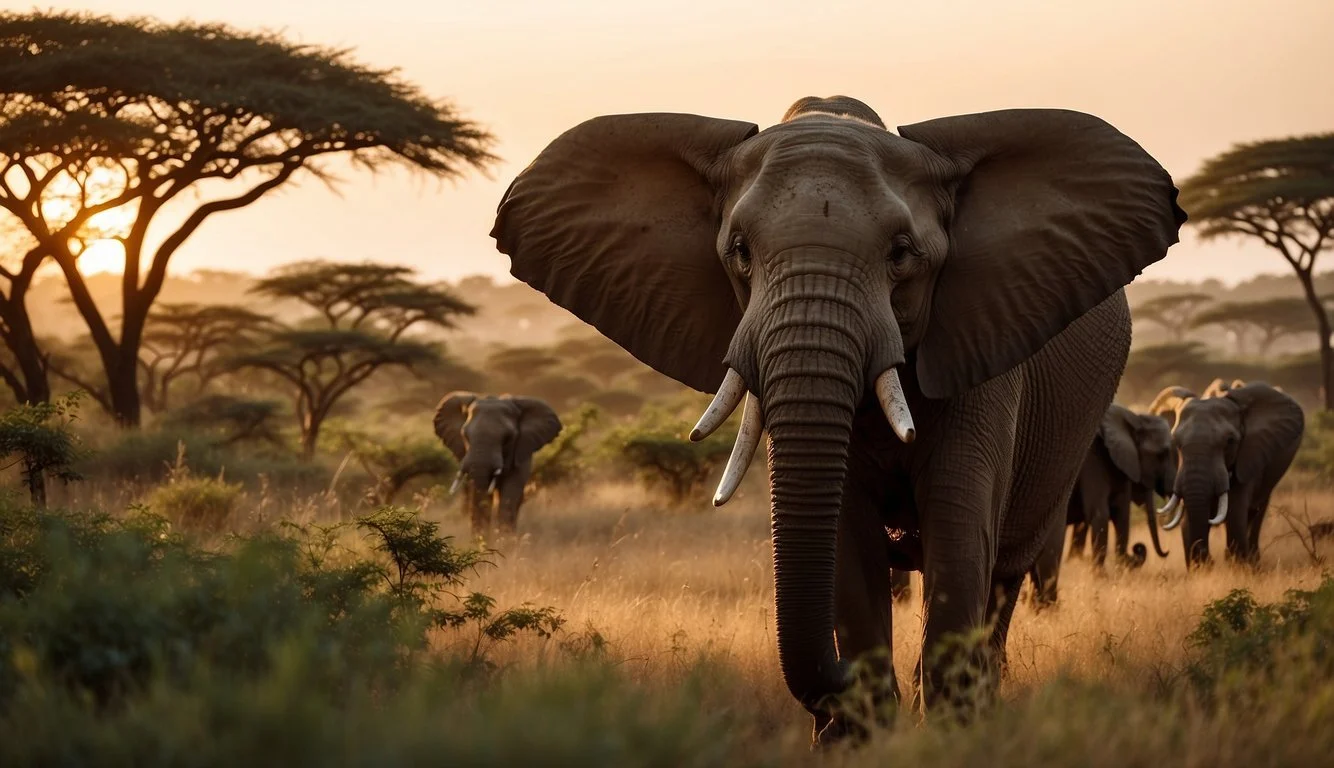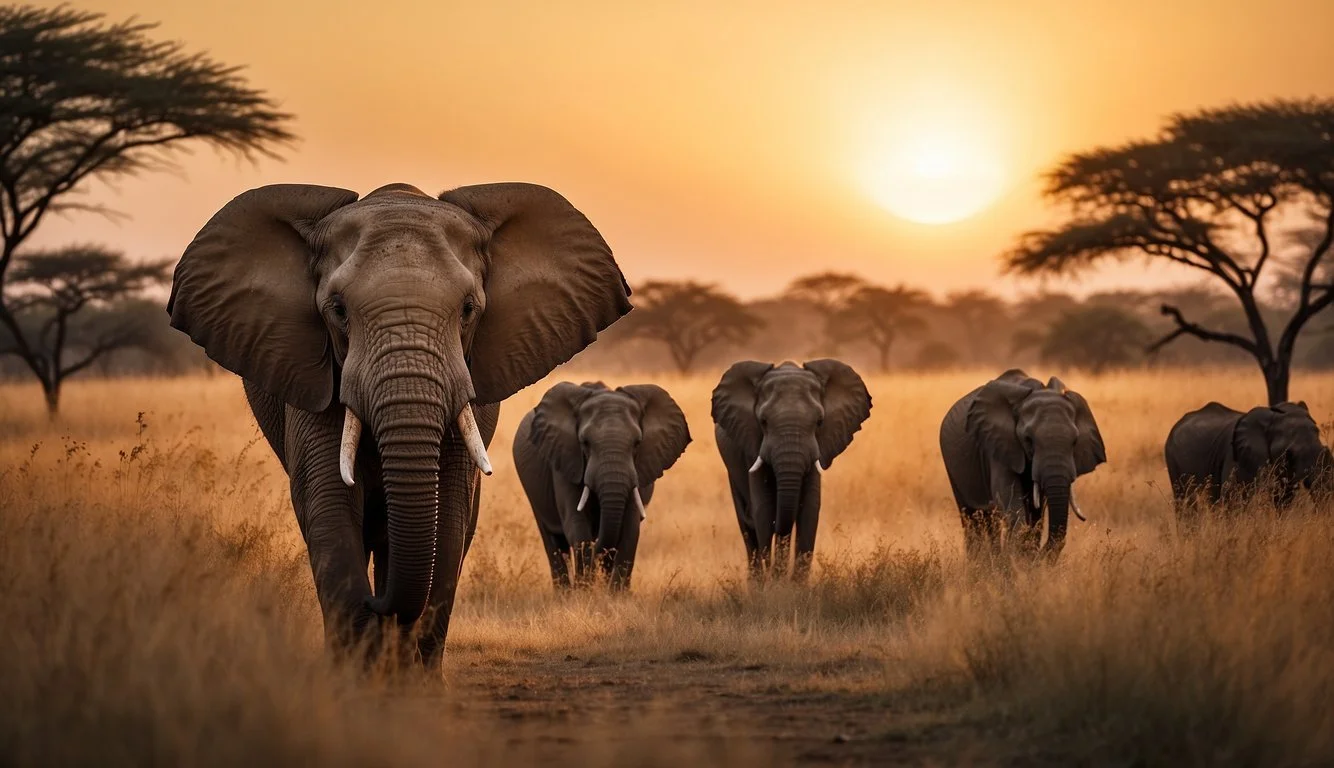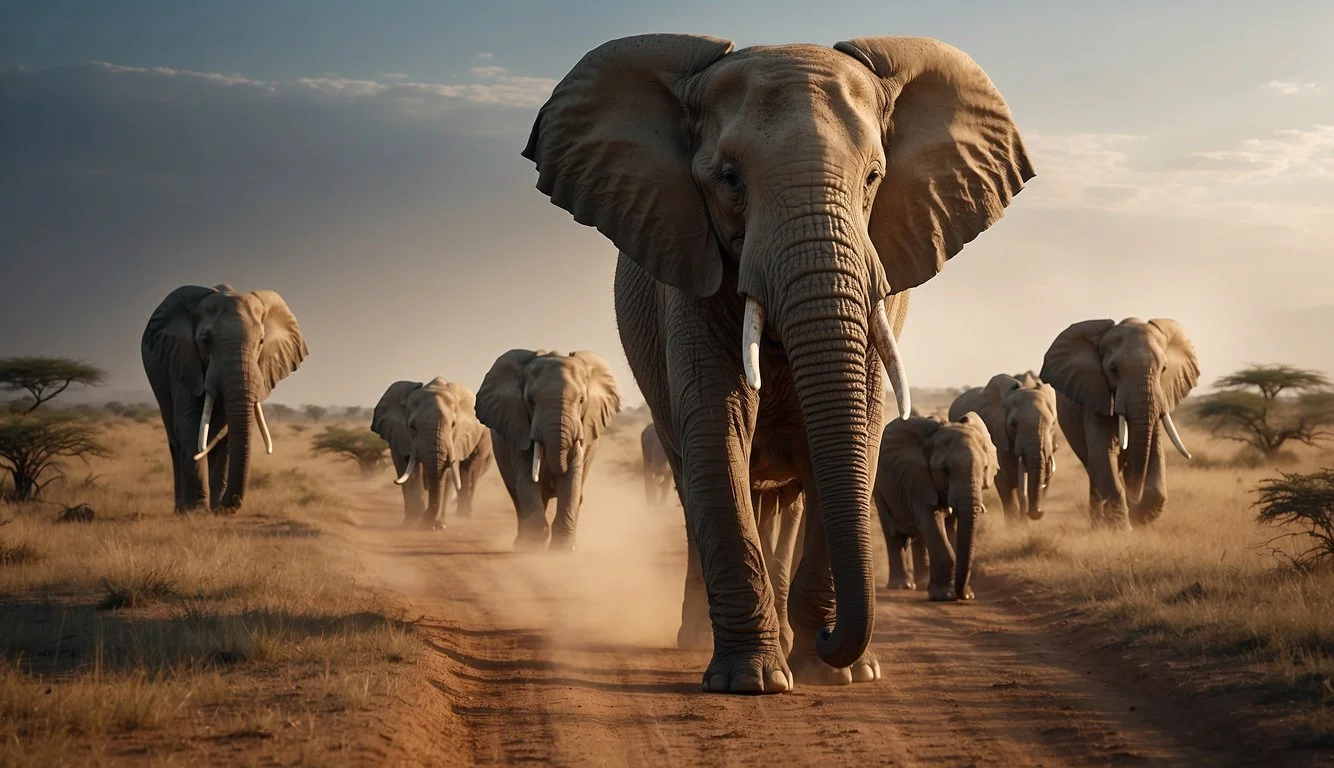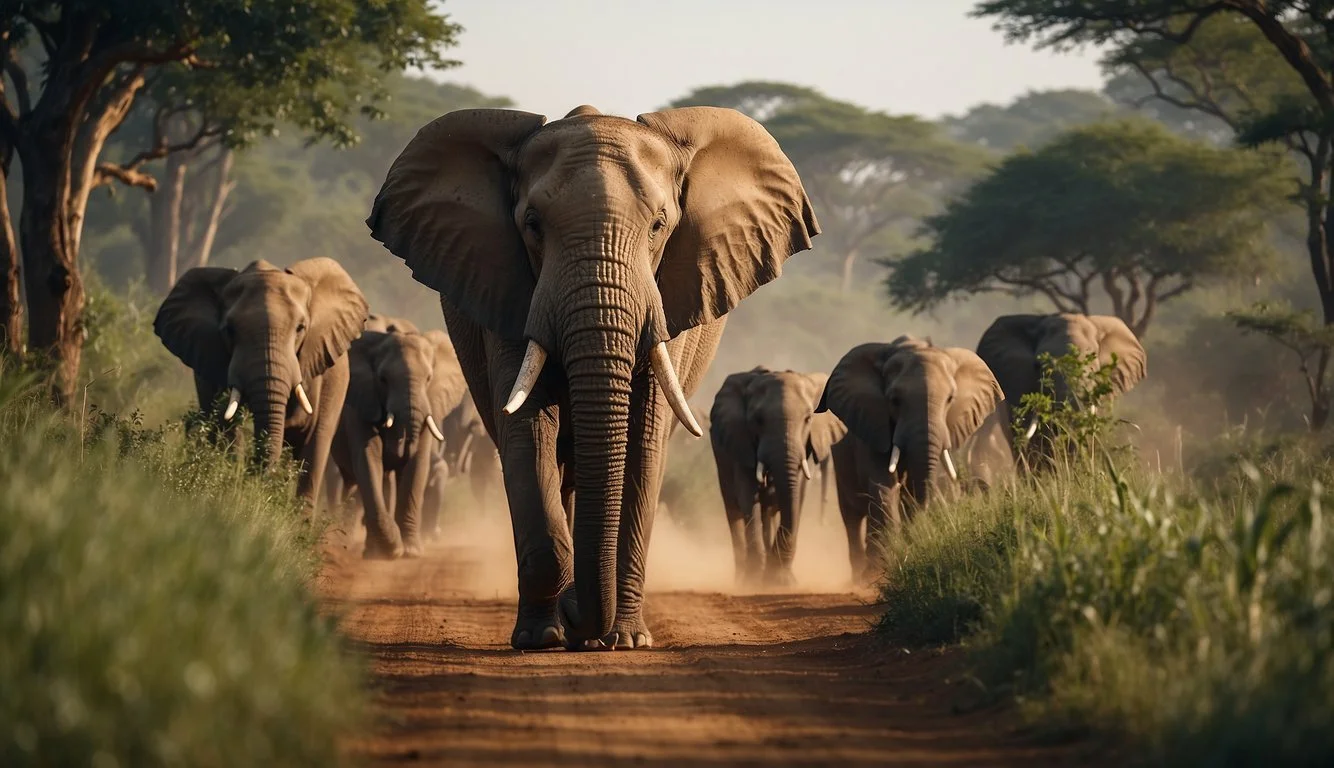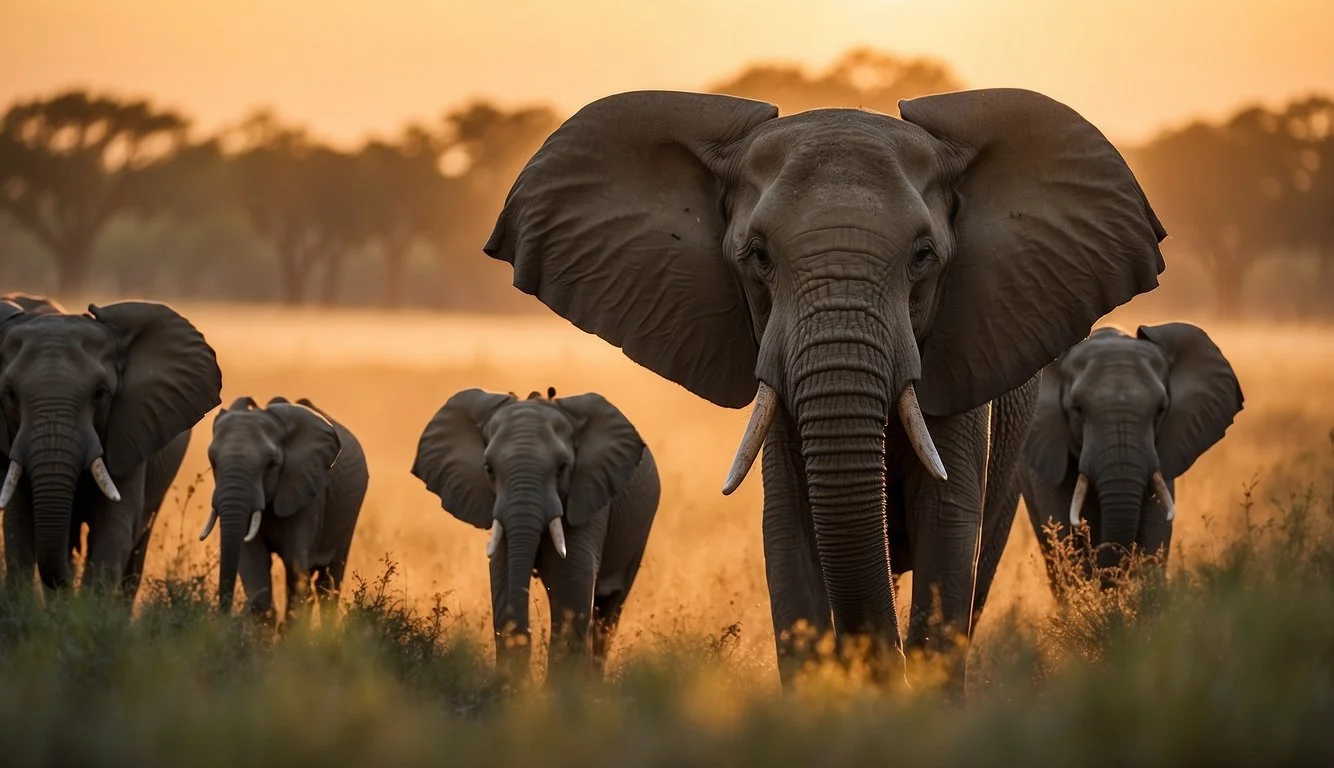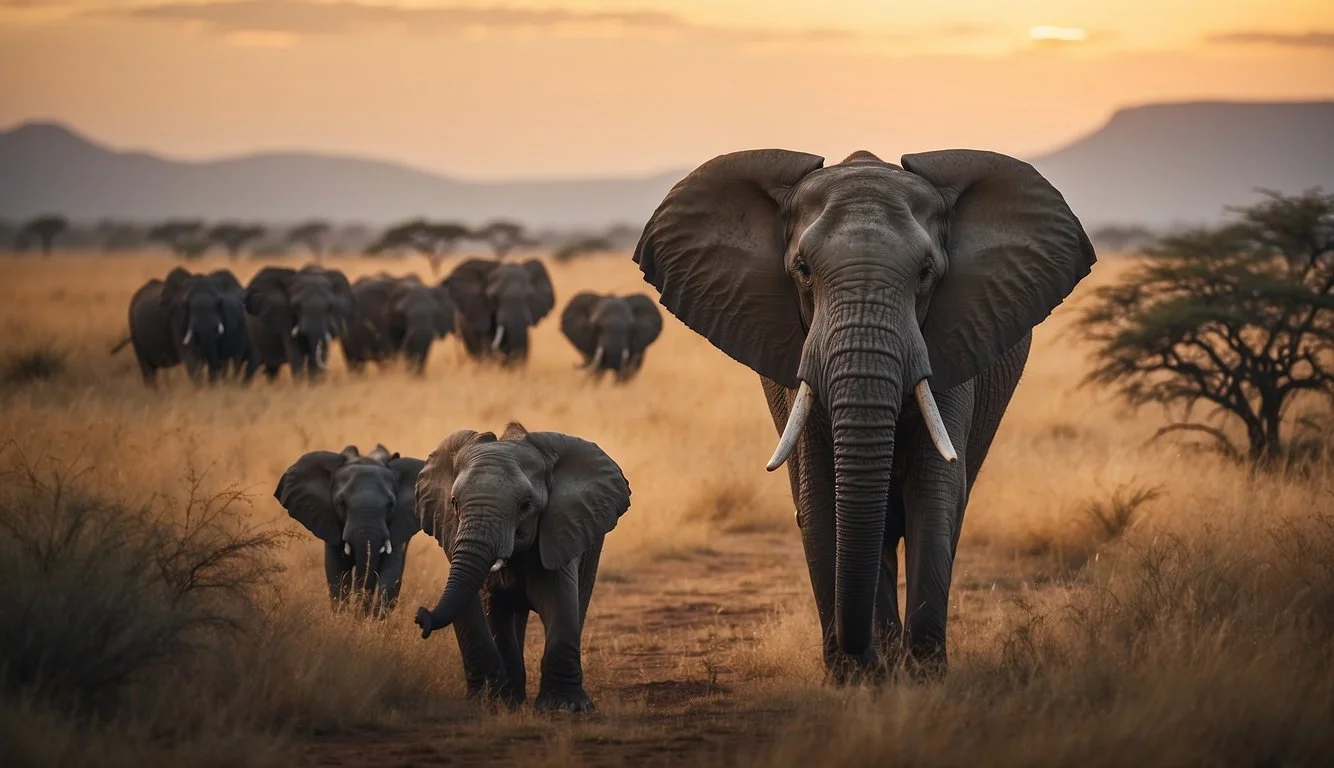Documentary Review: The Elephant Queen (2019)
An Enchanting Wildlife Journey
The 2019 documentary "The Elephant Queen" captures the majestic lives of elephants through stunning visuals and compelling storytelling. This nature documentary, directed by Mark Deeble and Victoria Stone, follows Athena, a mature elephant matriarch, as she leads her herd across the African savanna in search of water. The film not only highlights the grandeur of these majestic animals but also delves into the delicate balance of their ecosystem.
What sets "The Elephant Queen" apart from other nature documentaries is its deep emotional resonance. Viewers are treated to intimate moments within the elephant herd that showcase the bonds of family and community. Moments of joy, struggle, and survival are all poignantly captured, making it easy to empathize with these incredible creatures. The lush cinematography and heartfelt narration work in harmony to create a narrative that is both informative and deeply moving.
"The Elephant Queen" is more than just a visual spectacle; it is an evocative tribute to the wonders of wildlife. Through Athena's journey, the documentary succeeds in fostering a profound sense of empathy and admiration for elephants, encouraging viewers to reflect on the broader implications of conservation and the fragility of ecosystems. This film promises an unforgettable experience for anyone passionate about wildlife and the natural world.
Background on 'The Elephant Queen'
"The Elephant Queen" is a 2018 documentary film that centers on Athena, a majestic elephant matriarch, and her herd navigating the challenges of the African savanna. It showcases the intricate bonds, survival instincts, and community spirit within the herd.
Production Details
"The Elephant Queen" was directed by Victoria Stone and Mark Deeble, whose vision and dedication drove the project. The film involved four years of meticulous planning and shooting, with a significant portion focused on Athena and her herd.
Filming Locations: The documentary was primarily shot in Kenya, capturing stunning landscapes and wildlife diversity.
Cinematography: The cinematography stands out for its vivid and immersive depiction of the natural environment, bringing the audience right into the heart of the savanna.
The production team faced numerous challenges such as harsh weather conditions, ensuring minimal disturbance to wildlife, and maintaining the highest ethical standards. Despite these difficulties, their commitment resulted in a visually stunning and emotionally engaging film.
Filmmakers and Cast
Directors: The duo behind "The Elephant Queen" are Victoria Stone and Mark Deeble. They have a long history of working together on nature documentaries, bringing their vast experience to this project.
Narration: The documentary is narrated by Chiwetel Ejiofor, whose articulate and engaging voice complements the visuals. His narration adds depth and emotional resonance to the story, making the audience feel a part of Athena's journey.
Crew: The production crew included wildlife experts and local guides who provided invaluable insights into elephant behavior and savanna ecology. Their expertise ensured the film's accuracy and authenticity, making it a credible and reliable source of information about elephants and their habitat.
Release and Distribution
"The Elephant Queen" premiered in theaters on October 18, 2019, as part of a deal between A24 and Apple. Its theatrical release was limited, creating anticipation for its subsequent availability on Apple TV+.
Apple TV+ Debut: On November 1, 2019, it became one of the flagship releases for Apple’s new streaming service, Apple TV+. This platform provided a larger audience with access to this extraordinary documentary.
Critical Reception: The film has been well-received, holding a 91% approval rating on Rotten Tomatoes based on 22 reviews. Critics praised its visual beauty, emotional storytelling, and the compelling narration by Chiwetel Ejiofor.
In summary, the film's journey from production to release highlights its importance as a captivating insight into elephant life and the challenges they face.
Narrative Overview
The narrative of "The Elephant Queen" weaves a touching tale, focusing on the lives of majestic elephants. It highlights not just the beauty of these creatures but also the emotional bonds within their community.
Plot Summary
"The Elephant Queen" follows Athena, a matriarchal elephant, leading her herd across the African savanna. The documentary captures their journey during the dry season, revealing the challenges and dangers they face in search of water.
The story takes viewers through both heartwarming and perilous moments, providing an intimate glimpse into the lives of elephants. Throughout the documentary, the narrative emphasizes themes of family, survival, and the harsh realities of nature.
Key Characters and Voice-over
Athena stands at the center of "The Elephant Queen," depicted as a wise and determined leader. Her interactions with the herd, especially the younger elephants, showcase the deep familial bonds and social structure within the group.
Chiwetel Ejiofor provides the voice-over, offering a calm yet engaging narration that complements the visual storytelling. His narration helps to personify the elephants, making their experiences more relatable and poignant for the audience.
The combination of intricate character portrayals and thoughtful narration invites viewers into the elephants' world, making their struggles and triumphs feel vividly real.
Cinematography
The cinematography in "The Elephant Queen" stands out for its visual elegance, meticulous shooting techniques, and exceptional camera work that captures the beauty and intricacies of the African savanna and its majestic inhabitants.
Visual Style
"The Elephant Queen" employs a visual style that emphasizes the grandeur and subtleties of the natural world. The filmmakers utilize a vibrant color palette, showcasing the lush greens of the savanna to the rich, earthy tones of the landscape.
Close-up shots highlight the textures and emotions of the elephants. Wide, sweeping vistas establish the vastness of their habitat. The visual composition is both artistic and informative, allowing viewers to appreciate the beauty while understanding the environment’s ecological significance.
Shooting Techniques
Mark Deeble and Victoria Stone, the directors, committed four years to filming, ensuring they captured the elephants' lives in their natural rhythm. Time-lapse photography is used effectively to demonstrate seasonal changes and the migration of the herd. This technique portrays the passage of time in a visually engaging manner.
Slow-motion shots are employed to accentuate the power and grace of these animals. The dedication to shooting in diverse weather conditions adds an element of realism and authenticity, providing an immersive viewing experience.
Camera Work
The camera work in "The Elephant Queen" is notable for its intimacy and precision. The filmmakers used high-definition cameras and drones to obtain both ground-level close-ups and aerial perspectives. Steadicam shots maintain a steady, immersive feel during the herd’s movement.
The use of remote cameras helps capture candid behaviors without disturbing the elephants. Each shot is thoughtfully composed to highlight the elephants’ interactions, their relationships, and their survival strategies. The result is a dynamic and engaging visual narrative that brings viewers exceptionally close to the heart of the savanna.
Environmental Themes
The Elephant Queen intertwines the powerful story of a family of elephants with critical environmental issues, highlighting both conservation messaging and detailed habitat portrayal.
Conservation Messaging
The documentary underscores the importance of elephant conservation, vividly illustrating how these majestic creatures are pivotal to their ecosystems. Footage of their migratory journey emphasizes the threats they face, including habitat loss and climate change. The narrative portrays elephants as both victims and key players in their environment, driving home the need for immediate conservation efforts.
By showcasing the elephants' critical role, the film urges viewers to contemplate the broader impacts of their decline. Effective use of emotional storytelling fosters a deeper connection between the audience and the cause, making the conservation message resonate strongly.
Habitat Portrayal
The Elephant Queen provides an immersive view of the African savannah, meticulously capturing its beauty and challenges. The depiction of diverse landscapes—from parched waterholes to lush oases—highlights the delicate balance within these ecosystems. Viewers gain insights into how seasonal changes and human activities alter these habitats.
This portrayal is vital in understanding the interdependence between elephants and their environment. The filmmakers’ commitment to accuracy, shown through four years of dedicated observation, ensures that the portrayal remains not only visually stunning but also ecologically informative.
Critical Reception
"The Elephant Queen" (2019) garnered noteworthy attention from critics and viewers alike, praised for its stunning visuals and heartfelt narrative. The documentary also received accolades for its contribution to nature storytelling.
Critic Reviews
Critics have lauded "The Elephant Queen" for its breathtaking cinematography and emotional depth. Reviews highlighted the film’s ability to blend educational content with engaging storytelling. Roger Ebert’s review described the final act as remarkably touching, while Common Sense Media praised the documentary’s inspiring tribute to motherhood and community. Additionally, Rotten Tomatoes recorded a 91% approval rating, indicating a strong positive reception.
Audience Response
Audiences resonated deeply with the emotional aspects of "The Elephant Queen." Many viewers praised the documentary for its beautiful portrayal of elephants and their environment. Social media reactions often underscored the moving narrative and the intimate look into the lives of these majestic animals. The film’s vivid imagery and compelling storytelling fostered a strong connection with audiences, enhancing its impact.
Awards and Nominations
"The Elephant Queen" received recognition from several prestigious award bodies. Notably, the documentary was applauded for its cinematography and narrative approach. Award nominations included categories for best documentary and best cinematography in various international film festivals. This level of acclaim underscored the documentary’s success and its contribution to the genre.
Educational Impact
"The Elephant Queen" serves both as a captivating story and a substantial educational resource. Its presentation of elephant life in their natural habitat provides insights valuable for school curriculums and public awareness campaigns focused on conservation.
Use in Schools
Educators can integrate "The Elephant Queen" into various subjects such as biology, geography, and environmental science. The documentary explores ecosystems, animal behaviors, and the impacts of environmental changes on wildlife.
Teachers can create interactive lessons that involve analyzing the social structures of elephant herds and understanding their migration patterns.
Additionally, the emotional storytelling can help students develop empathy for wildlife, fostering a deeper appreciation for conservation efforts. Schools might also use the film as a starting point for broader discussions about biodiversity and human impact on natural habitats.
Public Awareness Efforts
Public awareness campaigns can leverage "The Elephant Queen" to highlight the importance of conserving endangered species. By showcasing the intimate and emotional journey of Athena and her herd, the documentary appeals to a wide audience.
Organizations can use the film in outreach programs to inform communities about the challenges facing elephants due to poaching and habitat loss.
Moreover, it provides a visual and narrative basis for advocacy programs, emphasizing the need for protective measures and sustainable practices. By reaching a diverse viewer base, the film contributes significantly to global environmental education and awareness initiatives.
Cultural Significance
"The Elephant Queen" is noteworthy for its impact on both wildlife documentaries and African cinema. It balances storytelling with powerful imagery, contributing to a broader awareness of wildlife and African cultures in cinema.
Influence on Wildlife Documentaries
"The Elephant Queen" stands out for its storytelling approach, using a narrative to elicit compassion for its subjects. The film employs stunning visuals and a strong emotional arc to present the elephants in a relatable manner, stepping beyond traditional documentary formats. Such methods can inspire future wildlife filmmakers to incorporate personal, story-driven perspectives. This shift is crucial for engaging wider audiences and fostering a deeper connection to conservation efforts.
Contribution to African Cinema
The film also makes a significant contribution to African cinema by spotlighting the continent's majestic wildlife and landscapes. Directed by Victoria Stone and Mark Deeble, who have a history of working in Africa, "The Elephant Queen" showcases the rich biodiversity of the African savanna. By reaching global audiences through platforms like Apple TV+, this documentary helps elevate African narratives and natural wonders, promoting a cultural and environmental appreciation that transcends borders.

